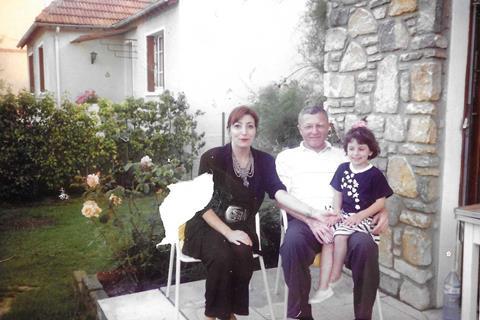Moving documentary looks at what happened to Mansur Rashid Kikhia, an opponent of Colonel Qaddafi’s brutal regime

Dir: Jihan. USA/Libya. 2025. 88mins
Jihan Kikhia was just six years old when her father, Libyan politician and human rights lawyer Mansur Rashid Kikhia, disappeared from a hotel in Egypt in 1993. “I don’t remember him,” she says at the beginning of her moving documentary, which follows the Kikhia family’s years-long search to uncover the truth of what happened. “I rely on other people’s memories.”
Paints a vivid portrait of Libya itself
Jihan’s accomplished debut is pieced together from other people’s memories, artfully combining talking head interviews and archive footage to compile a portrait of Mansur and the socio-political background of his disappearance. As Jihan, who was born in exile and raised in Paris, attempts to get to grips with both her father and her fatherland, the result is a compelling, intimate study of personal and communal grief that could attract specialist distributors following its Venice out of competition premiere.
The film opens with home video footage of a young Jihan – known to her relatives as Jiji – with her Syrian-American artist mother, Baha Al Omary. They talk briefly about Mansur; Jihan speaks of missing him, of wanting Qaddafi to free him. The family always believed that Libyan dictator Qaddafi – who came to power in 1969 aged 25, following a successful coup d’etat – was behind Mansur’s disappearance. Having previously worked as foreign minister and Libya’s ambassador to the UN, Mansur had spent time in Qaddafi’s increasingly brutal regime but had become a vocal opponent to the leader’s iron fist.
Mansur’s absence had a profound effect on his family; particularly Baha, who was relentless in her search for answers. Jihan and her siblings spent their childhood watching their mother search for their father, following her from their home in the USA to old haunts in Paris (where they lived happily before Mansur’s disappearance) and, when it was safe, back to Libya. There was always a camcorder present, and the home video footage is a bittersweet blend of wholesome family content – Thanksgivings, open-windowed car rides, singalongs – and the painful sense that someone is always missing.
There’s also the overriding feeling that Jihan has, from a young age, used the camera to try and keep the memory of her father alive. He is like a spirit that moves through the frame here, turning increasingly corporeal as he is brought to life through the memories and anecdotes from those who knew him; the young idealist, the committed family man, the moral politician and, in his later years, the brave dissenting voice. Baha is a particularly commanding presence as she speaks about her determination to find Mansur – which, incredibly, included a face-to-face conversation with an infuriatingly evasive Qaddafi. Her tenacity and courage imbues the film with a profound streak of resistance that echoes that of her husband, who travelled to Egypt in 1993 knowing he likely had a target on his back.
There’s also a sense of resistance in Jihan’s filmmaking, as she travels to Egypt and Libya to try to retrace her father’s steps and reclaim his story – and, by extension, her Libyan identity, which she fears is in danger of being eroded. Neat, unfussy editing from Alessandro Dordoni, Chloe Lambourne and Nicole Halovaitems layers archive photographs and news with family ephemera; at one moment, Jihan notes that a particular video, of her father addressing the UN in support of Palestine, is the first time she has seen her father move on film. As his character is revealed, so we come to understand the key role he played in hopes for Arab unity and a more prosperous Libya, and how those hopes were continuously dashed by each new turn of the political screw.
Jihan also takes care to pain a vivid portrait of Libya itself, using the timeline of her father’s life to illustrate the chronology of the country’s troubled past. Interviews with family, commentators (including fellow political prisoners) and politicians, including surviving opposition leaders, speak of a country repeatedly torn asunder by colonialist rule, civil war, dictatorships and, more recently, an Arab Spring which promised so much but led to more of the same. The hope that Mansour embodied seems to have faded in the years following his disappearance; the final gut-punch revalation of what happened to him another nail in the coffin of change. And while My Father And Qaddafi is a powerful, essential memorial, Jihan never lets us forget that Mansur’s fate is just one of millions.
Production company: Desert Power
International sales: Mad World info@madworld.film
Producer: Jihan
Cinematography: Micah Walker, Mike McLaughlin
Editors: Alessando Dordoni, Chloe Lambourne, Nicole Halova
























